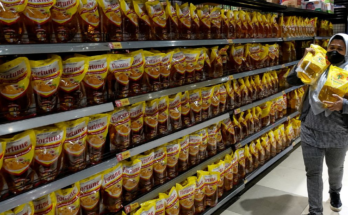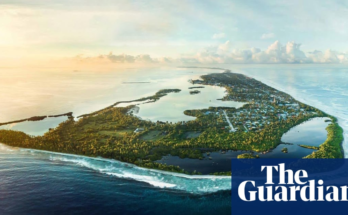JAKARTA, June 14 (Reuters) – Indonesian police are looking into the death of a politician from Sulawesi island who opposed a gold mine project there, after environmental groups and the human rights commission called for an investigation.
Helmud Hontong, 58, the deputy regent of the remote Sangihe islands, in North Sulawesi province, was pronounced dead on arrival at Sultan Hasanuddin International Airport in the city of Makassar on June 9.
Canadian mining firm, Baru Gold Corporation, which owns 70% of the Indonesian company granted the mining concession on Sangihe, said it strongly denied any suggestion of links to the death or that it had caused any environmental damage.
Police have set up a team to investigate the death, Jules Abraham Abast, a spokesman for the North Sulawesi police, said.
Initial results of an autopsy did not show any indication of poison, police said in a forensic report, adding that the suspected cause of death was chronic illness. Forensic samples had been sent for further testing, police said.
Ahmad Taufan Damanik, chairman of Indonesia’s human rights commission Komnas HAM, said it had asked police to investigate after receiving complaints from Sangihe island residents.
The politician had appeared to be in good health before boarding a Lion Air flight on Bali island but complained of feeling dizzy about 20 minutes after takeoff, his aide, Harmen Kontu, who was sitting beside him at the time, told Reuters.
Helmud “lost conscious (ness) and blood flowed from his mouth and nose” soon afterwards, Kontu said.
Helmud opposed the 42,000 hectare gold mine concession granted to PT Tambang Mas Sangihe. The central government gave the greenlight for the mine earlier this year.
PT Tambang Mas Sangihe is 70% owned by Canadian firm Baru Gold Corporation and 30% by combined interests, according to the Baru Gold website.
Baru Gold President and CEO Terry Filbert said in a statement that the company denied unfounded accusations over any link to the death of the politician in the strongest possible terms.
“The company has conducted itself, and will continue to conduct itself, in accordance with all laws, rules, and regulations,” he said.
Baru Gold said it had undertaken an environmental study and “outlined in detail a meticulous strategy to mitigate disturbances to the rare flora and fauna of the island”.
Environmentalists say the mining concession, which covers more than half of Sangihe Island – the main island in the group – is a threat to ancient forests, at least 10 species of birds and water supplies for residents.
On April 28, Helmud wrote to the Energy and Mineral Resources Ministry urging it to revoke the mine permit on environmental grounds, the ministry said.
The letter had been received and representatives of the ministry were scheduling a meeting with authorities in Sangihe to discuss the mine, Ridwan Djamaluddin, an official from the ministry, said in a statement.
Alfred Pontolondo, coordinator of the Save Sangihe Island environment group, said Helmud had been close to the island’s residents and opposed the mine “because of his love for the island”.
“I don’t want to speculate on his death,” he said. “Let the police process it legally if there’s any suspicion.”
Reporting by Agustinus Beo Da Costa in Jakarta and Kate Lamb in Sydney; Editing by Robert Birsel
Our Standards: The Thomson Reuters Trust Principles.



